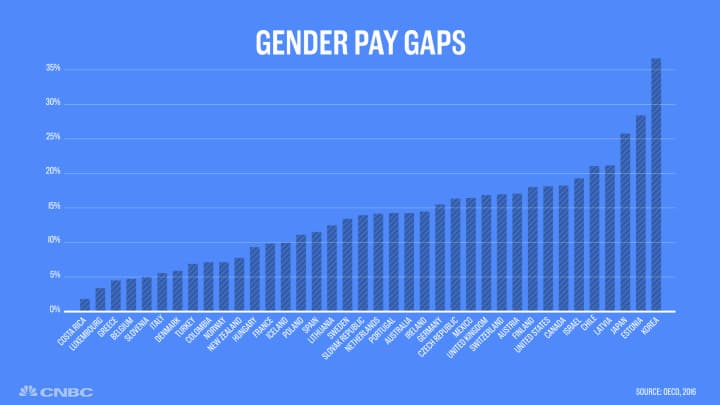The effects of Gender Pay Gap on economy.
Apr 05, 2023
This paper explores the effects of the gender pay gap on the economy. It looks at how unequal wages for men and women affects economic growth, household income, and workplace productivity. Additionally, it examines how policy makers can help to reduce gender wage gaps, such as increasing access to better education opportunities for women and introducing equal pay policies for employers. Ultimately, this paper argues that closing the gender pay gap is essential in order to create a more equitable economy with higher economic growth and greater economic stability.
The gender pay gap has been an issue for centuries, but its effects on the economy have only recently come into focus. Women are often paid less than men even when they possess similar qualifications or experience. This perpetuates inequality in households by reducing female incomes relative to male incomes. This inequity hinders economic growth, as households with lower incomes have less money to invest and consume in the economy. Moreover, this unequal wage structure reduces the incentive for women to spend time in the labor force and limits their ability to access better education opportunities. This can lead to fewer opportunities for professional advancement and career progression.

The gender pay gap also has an impact on workplace productivity by discouraging female employees from investing in their skill development or taking risks that could potentially benefit the company. It can create a culture of insecurity among female workers, which hampers innovation and creativity within organizations. Additionally, it contributes to increased absenteeism due to decreased job satisfaction and feelings of unfairness within organizations.
Policy makers have important roles to play in reducing gender wage gaps. They can improve access to higher education and training opportunities for women, as well as introduce laws that require equal pay for work of equal value between men and women. Furthermore, policy makers can also create incentives for private employers to reduce gender wage inequality, such as providing tax breaks or subsidies for companies that practice equal pay policies.
In conclusion, the gender pay gap has far-reaching negative effects on the economy. It creates an unequal playing field which prevents many individuals from achieving their true potential, hinders economic growth, and decreases workplace productivity. Therefore, closing this gap is essential in order to create a more equitable economy with stronger economic growth and greater economic stability. Policy makers must take steps to promote equal pay policies and provide better educational opportunities for women in order to achieve this goal.
